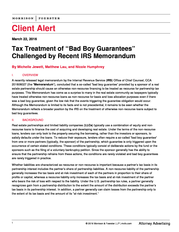Description
©2016 Morrison & Foerster LLP
.
Economic Conditions Sub Categories
Morrison & Foerster









